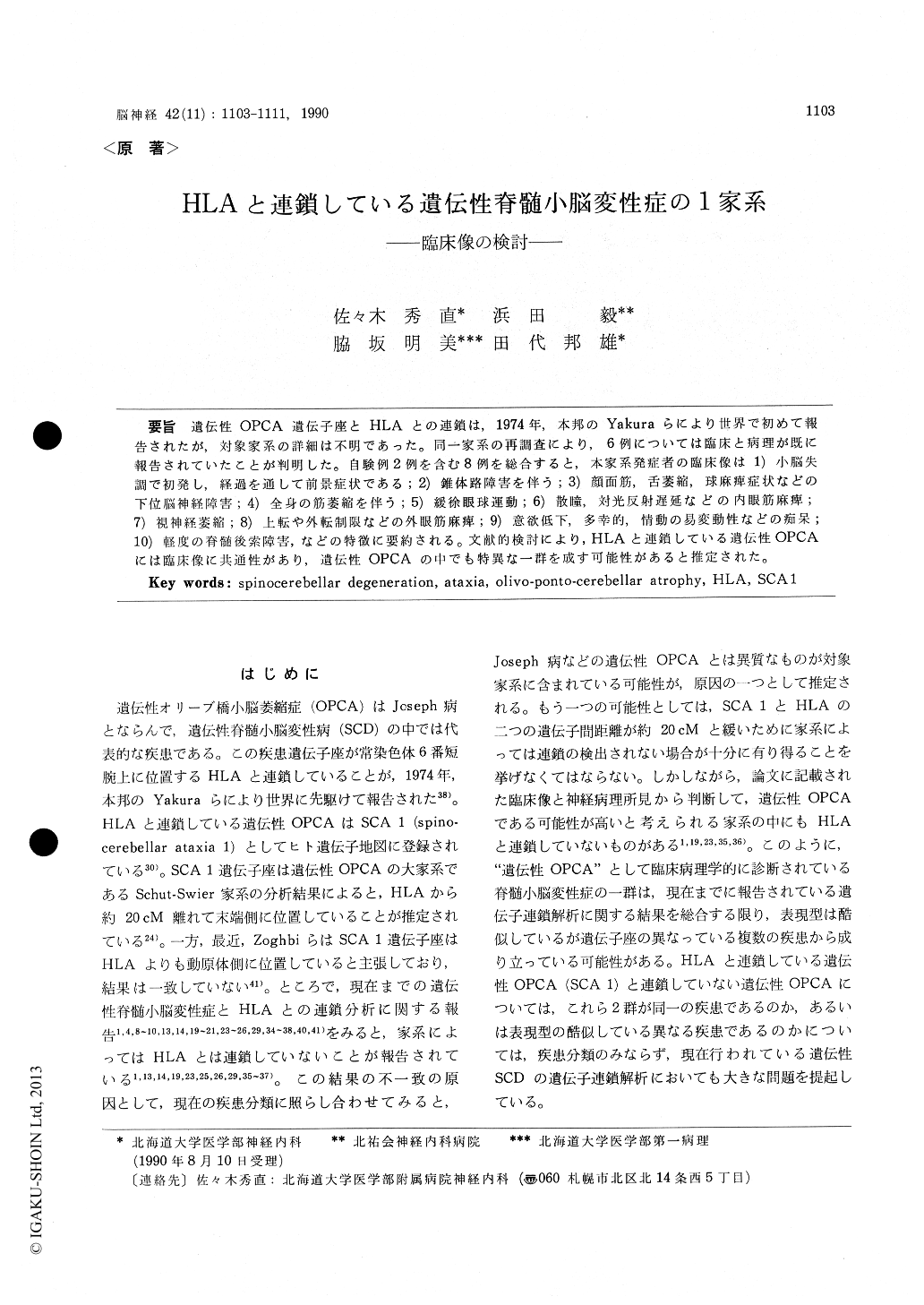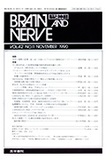Japanese
English
- 有料閲覧
- Abstract 文献概要
- 1ページ目 Look Inside
遺伝性OPCA遺伝子座とHLAとの連鎖は,1974年,本邦のYakuraらにより世界で初めて報告されたが,対象家系の詳細は不明であった。同一家系の再調査により,6例については臨床と病理が既に報告されていたことが判明した。自験例2例を含む8例を総合すると,本家系発症者の臨床像は1)小脳失調で初発し,経過を通して前景症状である;2)錐体路障害を伴う;3)顔面筋,舌萎縮,球麻痺症状などの下位脳神経障害;4)全身の筋萎縮を伴う;5)緩徐眼球運動;6)散瞳,対光反射遅延などの内眼筋麻痺;7)視神経萎縮;8)上転や外転制限などの外眼筋麻痺;9)意欲低下,多幸的,情動の易変動性などの痴呆;10)軽度の脊髄後索障害,などの特徴に要約される。文献的検討により,HLAと連鎖している遺伝性OPCAには臨床像に共通性があり,遺伝性OPCAの中でも特異な一群を成す可能性があると推定された。
The gene locus of hereditary olivopontocerebel-lar atrophy (OPCA) has been mapped to the short arm of chromosome 6. This locus has been termed as SCA 1 and it is linked to HLA locus. Linkagefor OPCA locus to HLA was first been reported by Yakura et al [38].
We had a chance to re-investigate the original family reported by them. Among the members af-fected, 6 cases were autopsied and their clinical and pathological features were reported by Fuji-moto et al [3]. Kudoh et al [15], and Ikeda [6]. We clinically studied 2 additional patients in this pedigree. The clinical features of these patients, including 6 previously reported cases, were charac-terized by 1) cerebellar ataxia predominating throughout clinical course ; 2) pyramidal tract invol-vement, chatacterized by pathological reflexes, with hyper-reflexia or terminal hyporeflexia ; 3) generalized muscle atrophy ; 4) slow eye move-ment ; 5) facial and tongue atrophy ; 6) optic disc pallor ; 7) terminal external ophthalmoparesis ; 8) mydriasis and sluggish light reflex ; 9) mild peri-pheral neuropathy ; 10) mild reduction of deep sense ; 11) bulbar symptom ; 12) emotional lability, irritation, or euphoria dominating terminally.
Clinically, there are certain similarities between this pedigree and other reported pedigrees of which linkage for OPCA locus to HLA have been proved. Furthermore, clinico-pathological reports of hereditary OPCA showing slow eye movement share numbers of clinical characteristics observed in the patients of this pedigree. Accumulating link-age data suggest that hereditary OPCA might be heterogenous disorder genetically. Whether there are any correlation between linkage data and cli-nico-pathological findings is essential to establish disease entities, and to re-classify hereditary OPCA and its related disorders.

Copyright © 1990, Igaku-Shoin Ltd. All rights reserved.


